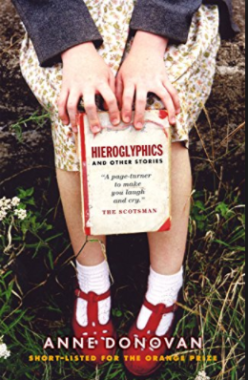Teaching Resources for Learners in the Senior Phase
 Using Scots in the classroom, particularly in the English classroom, can develop young people’s analytical skills and enhance their writing. Using Scots language texts may also foster an appreciation of Scottish literature and culture.
Using Scots in the classroom, particularly in the English classroom, can develop young people’s analytical skills and enhance their writing. Using Scots language texts may also foster an appreciation of Scottish literature and culture.
In National 4, National 5 and Higher English, Scots texts can be used to help readers develop an appreciation of lexical choice and grammatical structure. There are Scottish sets texts, a few of which are notable for their use of Scots. When developing writing skills, Scots can be used to create convincing dialogue and a sense of place. In Reading for Understanding, Analysis and Evaluation, Scots can be used to practice determining the meaning of unfamiliar language through using context clues, and considering the connotations of Scots words as opposed to words in other languages.
In modern languages, Scots can be used to develop young people’s awareness of the similarities and differences between languages.
Furthermore, learners can study the SQA ‘Scots Language Award’ either as a stand-alone qualification or as part of the ‘Scottish Studies’ award. In order to gain this qualification, which SQA offers at levels 3, 4, 5 and 6, candidates must demonstrate that they can read and write in Scots.
Key resources for young people in the Senior Phase include:
The ‘Scots Dictionary for Schools’ app. This app is FREE to download and is a useful tool for all learners.
National Library of Scotland’s ‘Wee Windaes’ website. This website provides older Scots texts and associated learning materials. The learners do not have to be online or have access to a PC to use the resources.
Education Scotland’s teaching resources, including an animation detailing the History of Scots; teaching resources for the Scots Language Award and a guide to the linguistic features of Scots are suitable for learners studying at NQ levels 3, 4, 5 and 6.
The Association for Scottish Literature website, which features FREE Teaching Notes on texts such as Liz Niven’s poem Tourists at Auschwitz. ASL also offer a series of Scotnotes and have an annual teachers’ conference.
The Scots Syntax Atlas, an interactive and engaging resource exploring word order in Scots across various dialects.
Many, many more resources can be found by browsing the links to the left.
For further help and guidance in teaching Scots language in the Senior Phase, email us at education@scotslanguage.com and follow our Education account on Twitter @LairnScots.